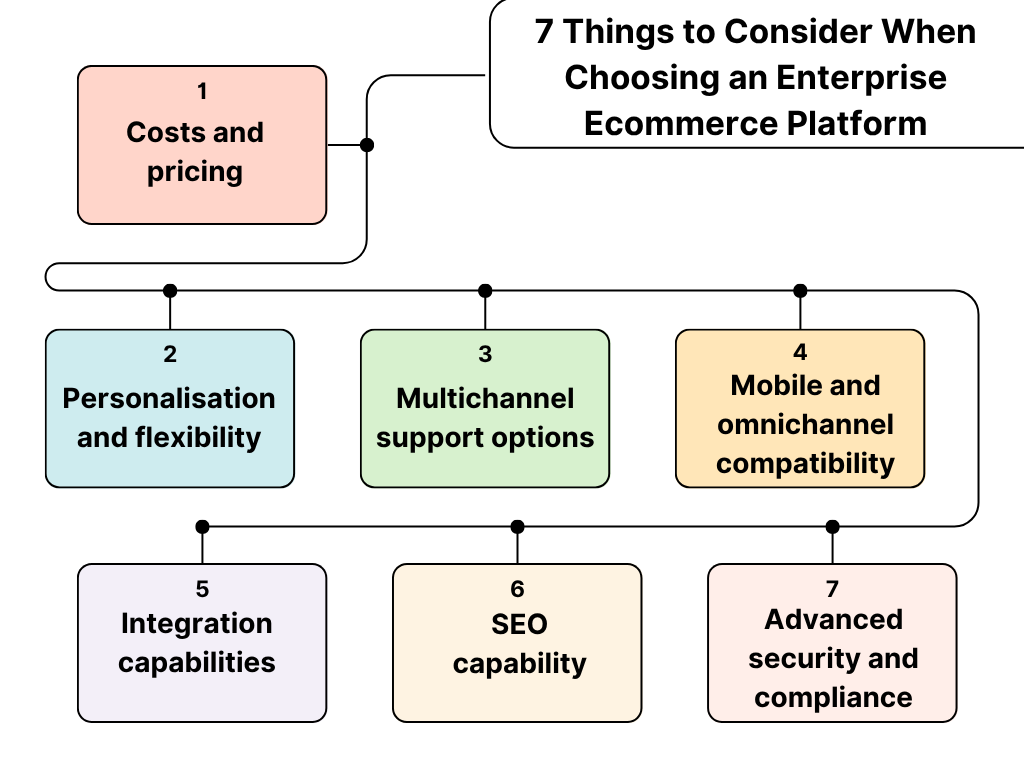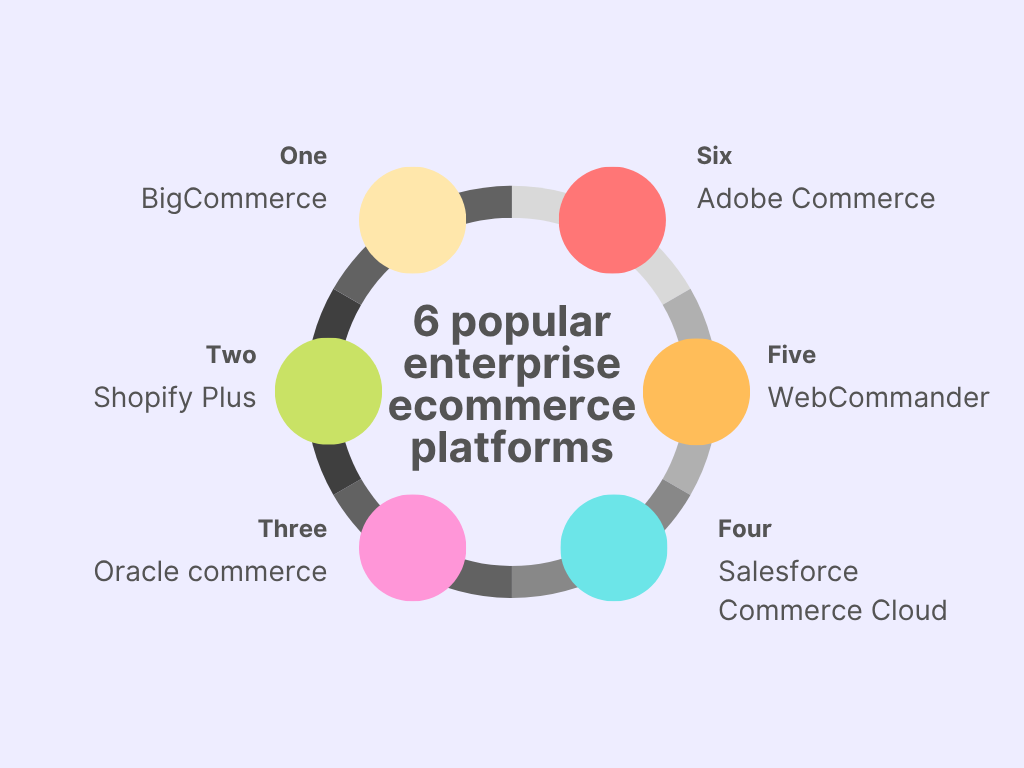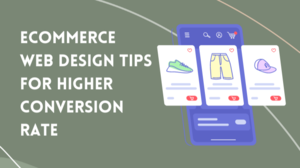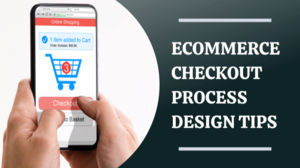A Guide to Choosing an Enterprise Ecommerce Platform in 2025
In 2025, we see the digital commerce landscape as way more dynamic than ever. At the centre of this transformation are the enterprise ecommerce platforms.
As your online store grows, the tool that once worked fine might begin to show its limitations. Pages may start loading slower; integrations might fail under such complexity, or customers' experience may suffer. Enterprise ecommerce platforms work as powerful systems that enable large-scale businesses to thrive in an increasingly competitive market.
But with too many options out there, how can you know which platform is right for you? After all, it is not just about ticking off all the tech features but also about taking a long-term strategic move for your business.
In this guide, we will walk you through what to look for to pick a platform that can help your store score smoothly in 2025.
Key takeaways
- Choose a platform that will grow with your business and offer the flexibility to support customisations, integrations, and future growth.
- Smooth integration with tools like CRM, ERP, and social media is essential for delivering a consistent brand experience and managing data efficiently.
- Prioritise platforms that support multichannel selling and offer mobile-optimised, omnichannel experiences to meet customers wherever they shop.
- Do check the platform's total cost, ease of use, support availability, SEO capabilities, and security features to ensure it aligns with your goals and resources.
7 things to consider when choosing an enterprise ecommerce platform

1. Costs and pricing
There can be a variety of pricing models, such as:
- Monthly subscriptions with tiered plans
- License-based fees
- Custom quotes that are being set based on business needs
However, besides these, there are some hidden and ongoing costs as well. That includes development and customisation:
- Third-party apps and other plugins
- Hosting and infrastructure
- Maintenance and updates
- Customer support plans
That is why it is a must-do to measure complete costs and pricing, including both upfront and long-term expenses. This will help you to invest in a solution that supports your business in the long run.
2. Personalisation and flexibility
Not all businesses are exactly alike- and your ecommerce platform must have to reflect that. Personalisation refers to functions such as displaying relevant product recommendations, providing dynamic content or promotions and offering customer-specific pricing.
To measure flexibility, you must check whether your platform allows you to design your site with custom layouts and branding. Also, check whether you can modify checkout flows, automate workflows and add or eliminate features and integrations based on your internal business operations and needs.
3. Multichannel support options
Customers no longer just shop in one place; they keep jumping between websites, social media platforms, online marketplaces or even physical stores. That is why an enterprise ecommerce platform must have to support multichannel selling. It will help businesses to sell across multiple platforms using just one central system.
As a result, it will end up improving the customer experience while offering more flexibility. You can also reach more customers, sell more efficiently and keep your brand consistent.
4. Mobile and omnichannel compatibility
In 2025, since more and more customers are browsing and buying things on their phones and tablets, an ecommerce platform must provide a responsive experience on any device. This will lead to fast load times, easy navigation, mobile-friendly checkout and layouts that adjust automatically to different screen sizes.
Check for omnichannel compatibility as well to create a connected customer experience. With an omnichannel-ready platform, customers can buy online and pick up the product in-store. They can also receive consistent promotions, order updates and support.
5. Integration capabilities
It is true for every business that, as it grows, the operations start becoming more complex. Businesses need to use a variety of tools, such as a CRM to manage customer relationships, an ERP to handle inventory and finance and other third-party apps to deal with email marketing, shipping and analytics. So, look for a platform that comes with a large app marketplace or partner ecosystem.
6. SEO capability
An enterprise ecommerce platform must have strong SEO capabilities so that your store can rank higher on search engines like Google. If your platform has good SEO tools, you can optimise each part of your store, including meta titles, image alt text, structured data, mobile optimisation, fast load times and more. Check for features like multilingual SEO or canonical tags if you have an enterprise business with large catalogues and international markets.
7. Advanced security and compliance
If you are running a large-scale ecommerce business, security is not just a choice; it is essential. You should look for PCI DSS Compliance, SSL encryption, two-factor authentication, and data compliance alongside regular security updates. Suppose you accept credit card payments; your platforms must meet the Payment Card Industry Data Security Standards where sensitive payment data is processed.
What is an enterprise ecommerce platform?
Enterprise commerce is a particular type of ecommerce that is usually used in more complex business structures involving high-volume transactions, multichannel selling and more.
These platforms are built to handle,
- Large sales volumes
- Custom workflows
- Deep backend integrations
- Global operations
- Massive product catalogues
- Advanced personalisation
Why choosing the right platform is important?
Selecting the right ecommerce platform is not just important to launch a store but to build a strong foundation for long-term success. It comes with many other advantages, including enhanced security, faster performance, multichannel selling and more.
Whatever platform you choose will impact how your teams work, how your brand is seen and how well you can respond to market demands. Otherwise, a wrong choice can lead to delays, inefficiencies, high costs and frustrated customers.
With the right platform, you can handle more products, more traffic, and more orders without slowing down or crashing. Also, not only do you manage everything from one place, but you also save time and minimise manual work and errors.
Moreover, it is always a fast, easy-to-use and mobile-friendly site that keeps customers happy. And, with the right tool, you can deliver a personalised experience.
6 popular enterprise ecommerce platforms

- BigCommerce
- Shopify Plus
- Oracle commerce
- Adobe Commerce
- WebCommander
- Salesforce Commerce Cloud
Questions to ask before you make a decision
Here's a list of some questions to ask before you decide.
- Are you operating across multiple channels and regions?
- Do you have to manage a large volume of traffic, products or orders?
- Do you have to handle both B2B and B2C customers with different buying needs?
- Do you have enough budget to invest in an enterprise-level solution?
- Can the platform you have chosen handle ongoing business needs?
- How good is the customer support?
- What do the other businesses say about this platform?
Final words
Overall, the decision to choose the right enterprise ecommerce platform is not just technical but strategic. Remember that it is not just about inventing software; rather, you are investing in your growth, your brand and your ability to deal with anything the future brings.




![How to Start an Ecommerce Business in Australia [2023 Guide]](/template/e27cf56f/images/resource-blog-right-img1.png)





